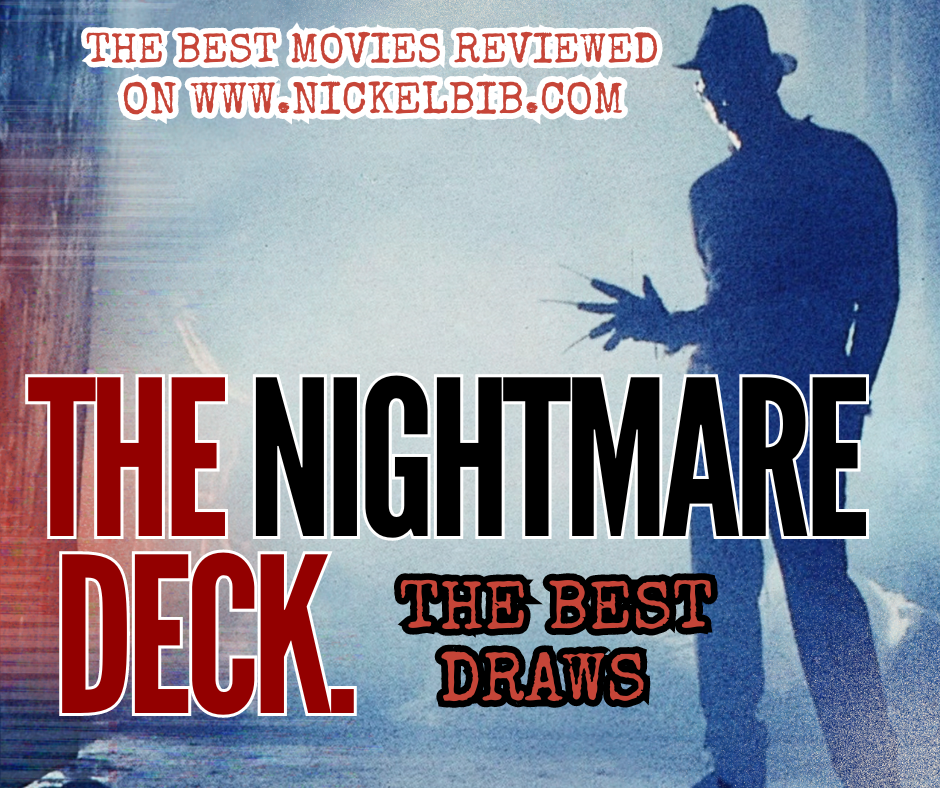The horror genre is ripe with sequels to films that, in-retrospect, feel like open-and-shut stories. Series that don’t in-fact feel like they should be series at all, with films that feel like they have a proper beginning, middle, and end for their main protagonist. Orphan is one such film. It’s a simple, decent horror film that offers everything it needed to about her backstory, lets the horror unfold, and culminates with the classic payoff of good over evil. Regardless of that, Orphan: First Kill exists anyways.
What’s even more remarkable about that fact is that the original Orphan was released back in 2009, becoming only a modest box office success, all things considered. If you look at a film like Sinister 2, which had half the budget of Orphan, and made 54 million at the box office, compared to Orphan’s 78 million, and consider how that disappointing return was enough to put the kibosh on any plans for a third Sinister, it’s a real head scratcher that this film was greenlit.
That is the interesting thing about the film industry and how truly nuanced it can be – there are a lot of variables to factor in. Home-video and streaming sales can move the needle in major ways, especially with smaller, low-budget fare. Likewise, too, you have to think about the production company involved. A production company like Blumhouse may look at the returns of Sinister and not being able to justify sequels when they could instead produce sequels to more lucrative fare like Insidious or Halloween, but a company like Twisted Pictures, with no other major intellectual properties to pull from, will mine a franchise like Saw again and again. Such is the case with Dark Castle Entertainment, a company with some notable horror fare in their backlog like Thirteen Ghosts, the House of Wax remake, and Splice.
For them, a low-risk, high-reward film like Orphan: First Kill is a no-brainer. Why they decided they needed to wait thirteen years after the fact instead of striking while the iron is hot is unclear, but it is better late than never.
Orphan: First Kill was directed by William Brent Bell. If the name doesn’t ring any (Brent) bells to you, I understand. He isn’t a coveted name in the horror genre like Mike Flanagan, Jordan Peele, or James Wan, for instance, but he has directed a handful of films you’ve likely heard of. In 2006, he co-wrote and directed the horror film Stay Alive, a box office misfire and horribly bashed supernatural horror film about a videogame that can kill you. For me, although I haven’t seen Stay Alive since it was released and am certain I’d be disappointed if I went back and looked, I remember my ten-year-old self having fun with the film. He rode the found-footage craze with the forgettable but largely successful Devil Inside, and even directed both The Boy and its sequel Brahm’s: The Boy II. Thus, he is a director many of us may have heard of, one who has found financial success but never once had a film with critical success. For that reason, I can imagine the response to Orphan: First Kill has been a pleasant surprise for him.
The film was released in theaters as well as on Paramount Plus (which is where I watched the film), and although it is set to make a fraction of what its predecessor did – currently on-pace to make 10 million dollars off an unconfirmed budget I would imagine as somewhere in the neighborhood of 5 to 10 million – I imagine that, coupled with the consistent trending status for both it and its predecessor, is enough to make everyone mostly satisfied with the film’s outcome. As far as reviews are concerned, not only is it by far William Brent Bell’s most well-received film, coming just shy of a Certified Fresh rating from Rotten Tomatoes, but many critics have gone as far as to claim it is better than the original film.
The film sees Isabelle Fuhrman reprising her role from the previous film, an interesting yet welcome decision in the end. In the original, she is, of course, actually a young girl, whereas now, some years later, is a twenty-five-year-old woman, not with Dwarfism. This meant they had to do a lot of camera trickery and manipulation in-order for her to reprise the role, which I was a little concerned about heading in. Thankfully, I’m happy to report my concerns were largely unfounded.
Series newcomers include Rossif Sutherland, Hiro Kanagawa, and the always welcome, Julia Stiles.
Although the film is a prequel and, as a prequel, has a linear trajectory you’re aware of heading into it, Orphan: First Kill does try to add its own twists and turns to its execution. In other words, it doesn’t feel like a generic origin story, per se. In a lot of ways, I feel it is even better taken as its own original, standalone thing as much as your mind can allow.
In the film, Leena Klammer escapes from the Saarne institution and begins her ploy to find passage out from Estonia. While swinging at a playground, she convinces a police officer she is an American named Esther Albright, a name she discovered amongst a longlist of unsolved missing person’s cases, and claims she was kidnapped. She is then introduced to her new family, a husband and wife and their rebellious teenage son. A lot of what you might imagine next ensues, but, at the same time, like I said, the film is certain to throw some curveballs in to keep things different.
When I talked about the original Orphan, I mentioned the documentary The Impostor, and I did so on a whim. The documentary is one of my absolute favorites and is one I absolutely recommend. Having now seen First Kill, I realize that a wonderful coincidence has happened. By that, I mean Orphan: First Kill is, in fact, pretty much The Impostor. It isn’t directly attributed as so, but the amount of glaring similarities are too large and apparent to claim otherwise. In that true story, a Frenchman convinces a police officer in Spain that he is a missing person from the United States, and, from that, he is introduced into that family and plays them all for fools.
The consequence of having seen that documentary, however, and making the connection as early as I did, also means I had this vague feeling like I had already seen the Orphan 2. In The Impostor, an unsubstantiated, unproven claim is made, and that claim serves as the foundation for the twist in this film.
As a film, Orphan: First Kill is decent, similar to its predecessor. The acting is decent, and like Vera Farmiga before her, Julia Stiles finds herself tasked with carrying a lot of the film – alongside Isabelle Fuhrman, of course.
The cinematography has improved, shedding away a lot of the melodrama and very 2000s nature of the original film, opting for a more conventional, understated approach. There aren’t as many jumpscares or jolts peppered in, and, in total, I would argue it is a better made film.
Meanwhile, an older Isabelle Fuhrman is more able to convey humor and the sense it is an adult beneath the façade.
The storytelling is simpler and leans further into the campier nature of the subject matter, which is for the best. It feels more playful this time around, and by chopping off 24 minutes from the runtime this go around, it feels leaner and more appropriate in its restraint.
As far as whether Orphan 2 is better than Orphan 1 is debatable, however. Personally, although I would attest that the original film did suffer from certain decisions, it did feel wittily written and had an actual emotional weight behind it. It felt like it was everything it needed to be, offering each character a proper story arc. Vera Farmiga’s character had depth, and, in general, the characters felt more lived-in. It may’ve not always stuck the landing, but it at least made the leap, something I think can’t be said as much for this film.
Likewise, too, Orphan: First Kill does suffer from that thing prequels do, where it tries to ham-fist a lot of connections to small tidbits of the original film. For instance, now we know backstory on the black-light paintings she does, and other little things we didn’t really need explanations for.
Did I like Orphan: First Kill more than the 2009 film? Personally, I largely preferred the original. Orphan simply had weightier ambitions than its sequel. Orphan did okay with heavy subject-matter, whereas Orphan: First Kill stays in its lane. The original film always had an unintentional campiness behind it, a certain so close, yet so far away grasp at hitting the mark, Orphan: First Kill turns into the skid, delivering intentional campiness and making an okay film as a result.
Orphan: First Kill is a decent film and a serviceable sequel to the 2009 sleeper hit, which is about everything you could ask for.






GIPHY App Key not set. Please check settings